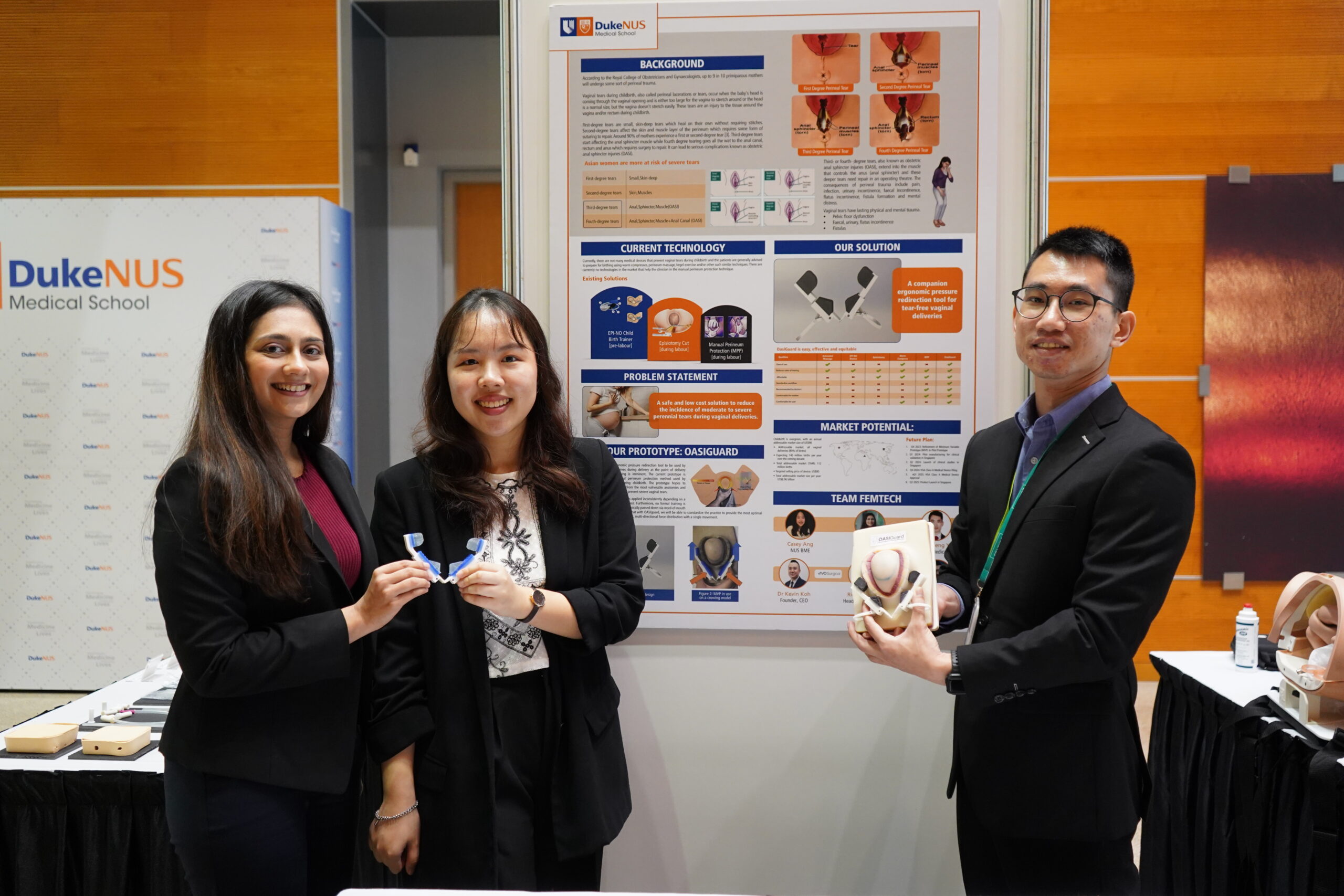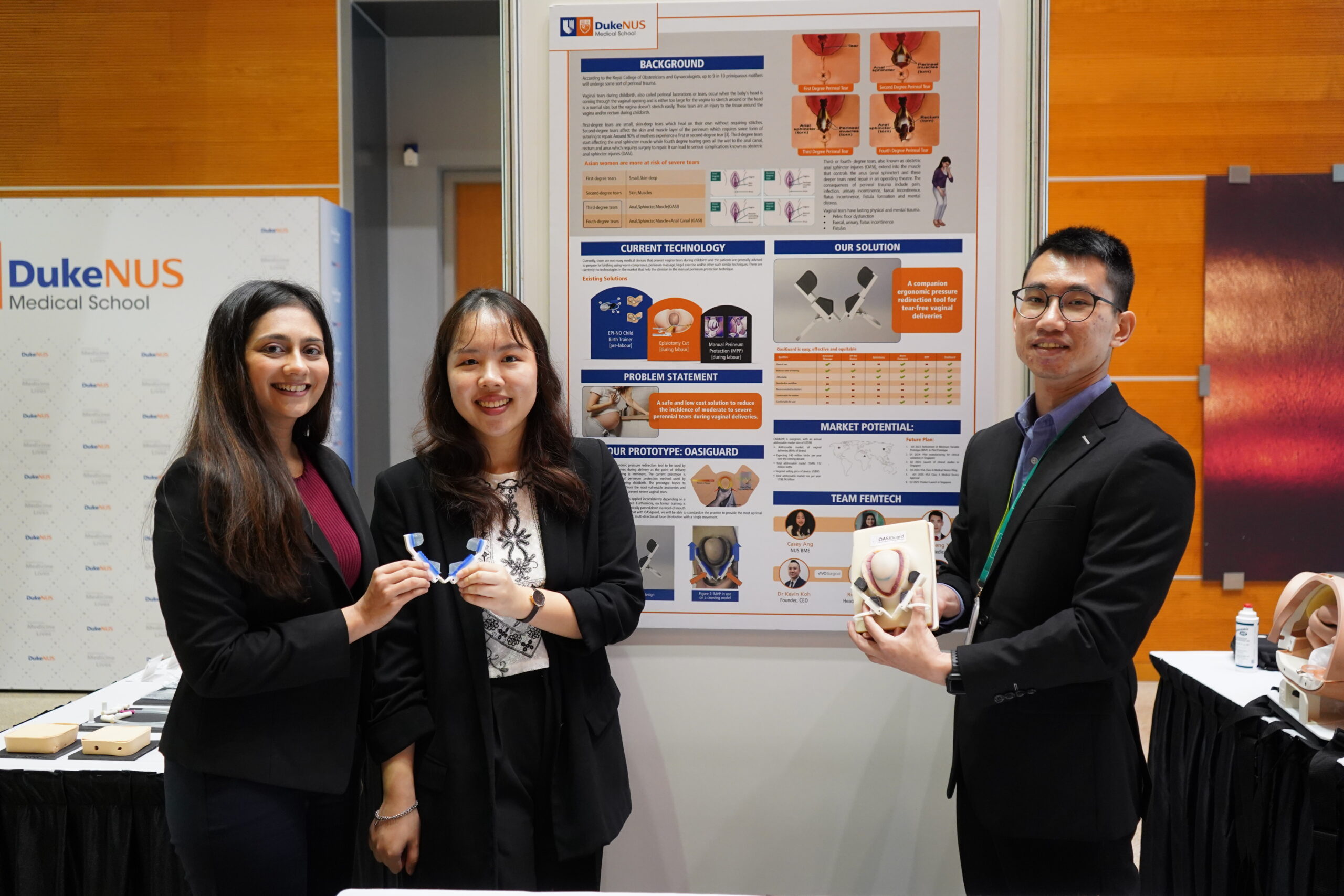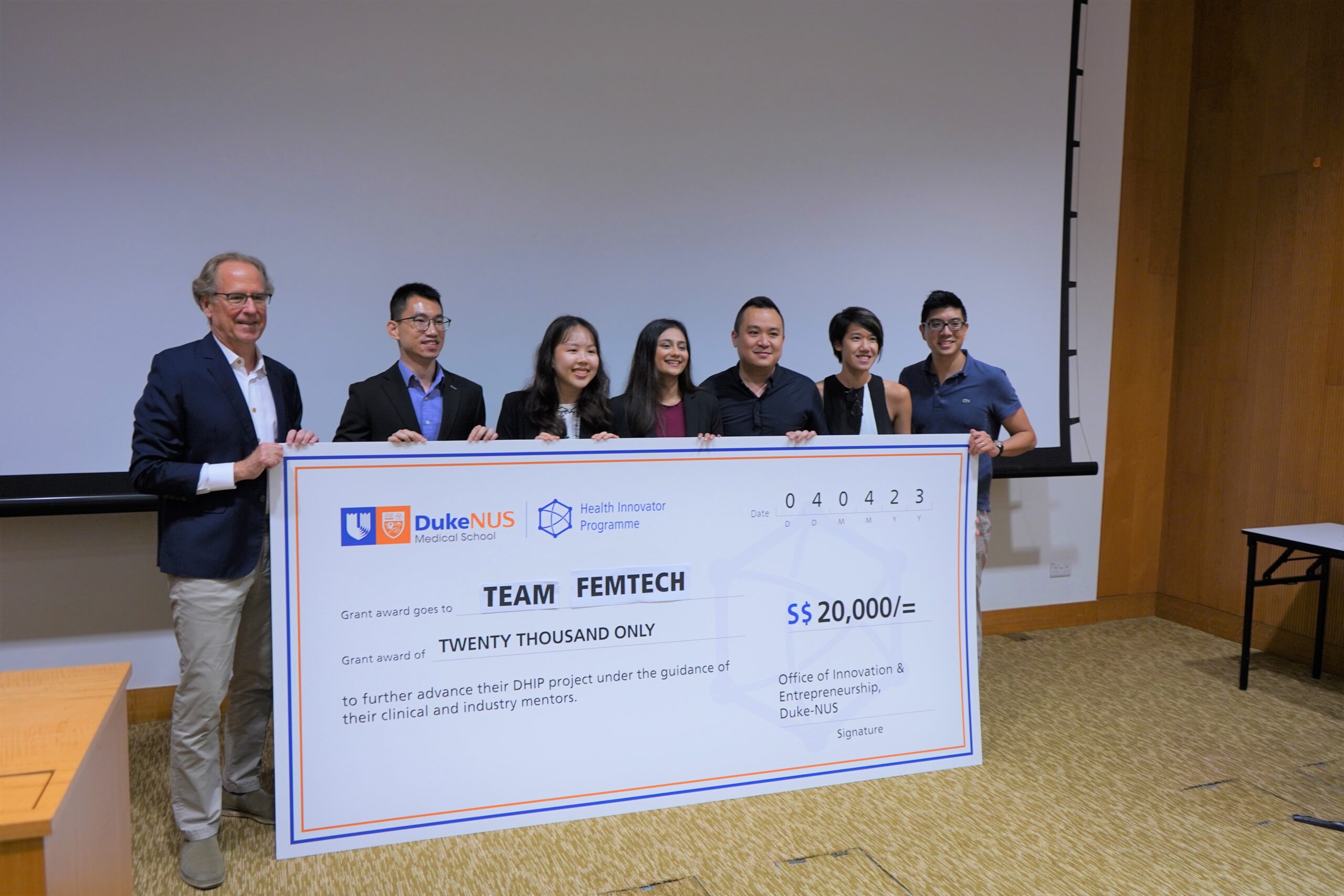Ms Anar Sanjaykumar Kothary, a current MBA student, has a passion for integrating business with medicine.
When the opportunity to participate in the Duke-NUS Health Innovator Programme (DHIP) arose, she jumped on it and subsequently, teamed up with a Biomedical Engineering student and a Medical student from the NUS College of Design and Engineering and Duke-NUS Medical School respectively, to develop viable solutions for health issues faced by women today.
At the end of the programme, the team created an innovative medical solution, known as OasiGuard, which is a device that prevents vaginal lacerations or tears during natural childbirth. The invention won them the top prize in a ‘shark tank’-style competition and an invention advancement funding of $20,000.
In this feature, Anar shares her journey in this special programme.
Q: As an MBA student, what motivated you to join a medical-related programme?
With a bachelor’s degree in biomedical science and previous work experience in HealthTech, I am aware of the challenges that scientists and medical professionals face in translating scientific ideas into commercial products. Therefore, I have always been drawn to the cross-pollination of healthcare innovation and business.
The MBA programme offers a wealth of multidisciplinary learning opportunities, which enables candidates to collaborate with students from other disciplines to develop innovative solutions. Recognizing the potential to merge my business acumen with my biomedical expertise, I immediately signed up for the DHIP program.
Q: What is your role in the OasiGuard project team?
My role as an MBA student was critical across various facets, including business strategy and product design. My financial accounting and marketing skills were particularly useful in estimating profit and loss, devising pricing strategies, developing a go-to-market plan, and creating a pitch deck.
I was also able to leverage my previous experience working in a HealthTech company and provided insights into user adoption and feasibility, which were crucial for product design. I also played a pivotal role in the market research process that enabled us to obtain a more holistic understanding of user needs.





